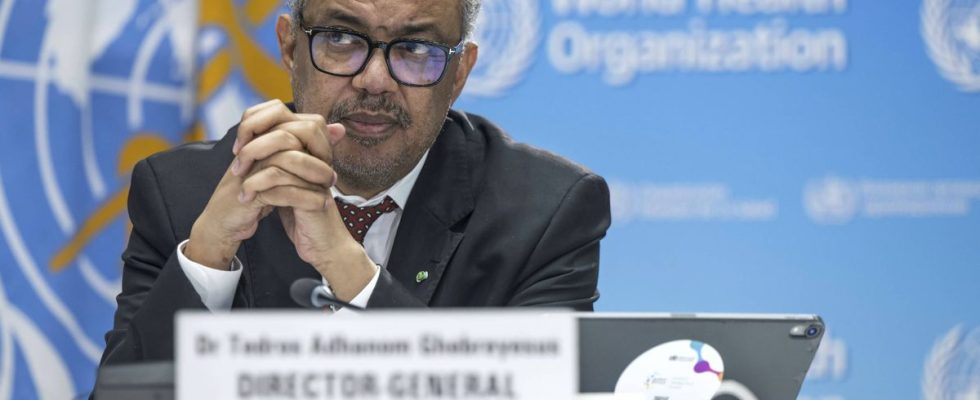Published on
Updated
Reading 2 mins.
in collaboration with
Dr Gérald Kierzek (Medical Director)
The World Health Organization intends to launch a global digital certification system, modeled on the European Union’s Covid certificate. The goal? Facilitate mobility while protecting the citizens of the world “against health threats”. Dr Gérald Kierzek reacts to this announcement.
Will traveling soon have to be done with a global health pass, even outside of a pandemic? In any case, this is what the World Health Organization is proposing, which on Monday signed a historic partnership to use the European Union’s digital Covid certificate (which we know well) to launch a global digital certification system.
The goal: to strengthen global health security
WHO Director-General Tedros Adhanom Ghebreyesus and European Health Commissioner Stella Kyriakides, who signed this “historic initiative” on Monday in Geneva, see this system as a better way to “to help facilitate mobility and protect citizens around the world against current and future health threats, including pandemics”. And if digital solutions have shown their interest during the Covid-19 pandemic, the expected model claims to facilitate access to care for all.
“The network could also play a crucial role in cross-border humanitarian situations by ensuring people have access to their medical records when crossing borders due to conflict, climate crisis or other emergency situations. emergency”observed Tedros Adhanom Ghebreyesus
The planned device represents the first component of “a wide range of digital products to improve the health of all”, such as international digital vaccination cards.
Gérald Kierzek: “It is not the state of health that should serve as a passport”
Sharing your state of health to cross a border, is it really necessary to protect yourself? Doctor Tedros Adhanom Ghebreyesus, aware of this limitation, pointed out that the future global digital certification system would be “based on the principles of fairness, innovation, transparency and protection of data and privacy”. WHO will not have access to personal data, to which only the authorities will have access. It will however be able to verify the authenticity of the certificates.
An announcement that does not at all satisfy Dr. Gérald Kierzek, medical director of Doctissimo, who sees two serious problems in this partnership:
“I protest for two reasons: on the one hand, this digital control system which is developing at the moment, with camera, facial recognition, digital certificate… is in the process of imposing an unbearable social control on us. And on the other hand, it is not the state of health that should discriminate against a person entering a country! Medical data is personal, it belongs to the patient and should not be used as a passport or pass.”
Dr Gérald Kierzek denounces a drift that we probably owe to the Covid epidemic:
“We have the impression that medical secrecy has been shattered with the health pass, and that fear makes people accept problematic things. But here, it’s not just a medical problem, but a matter of freedom and a real political issue. And as a doctor, I refuse to allow health data to be used for this purpose.”
